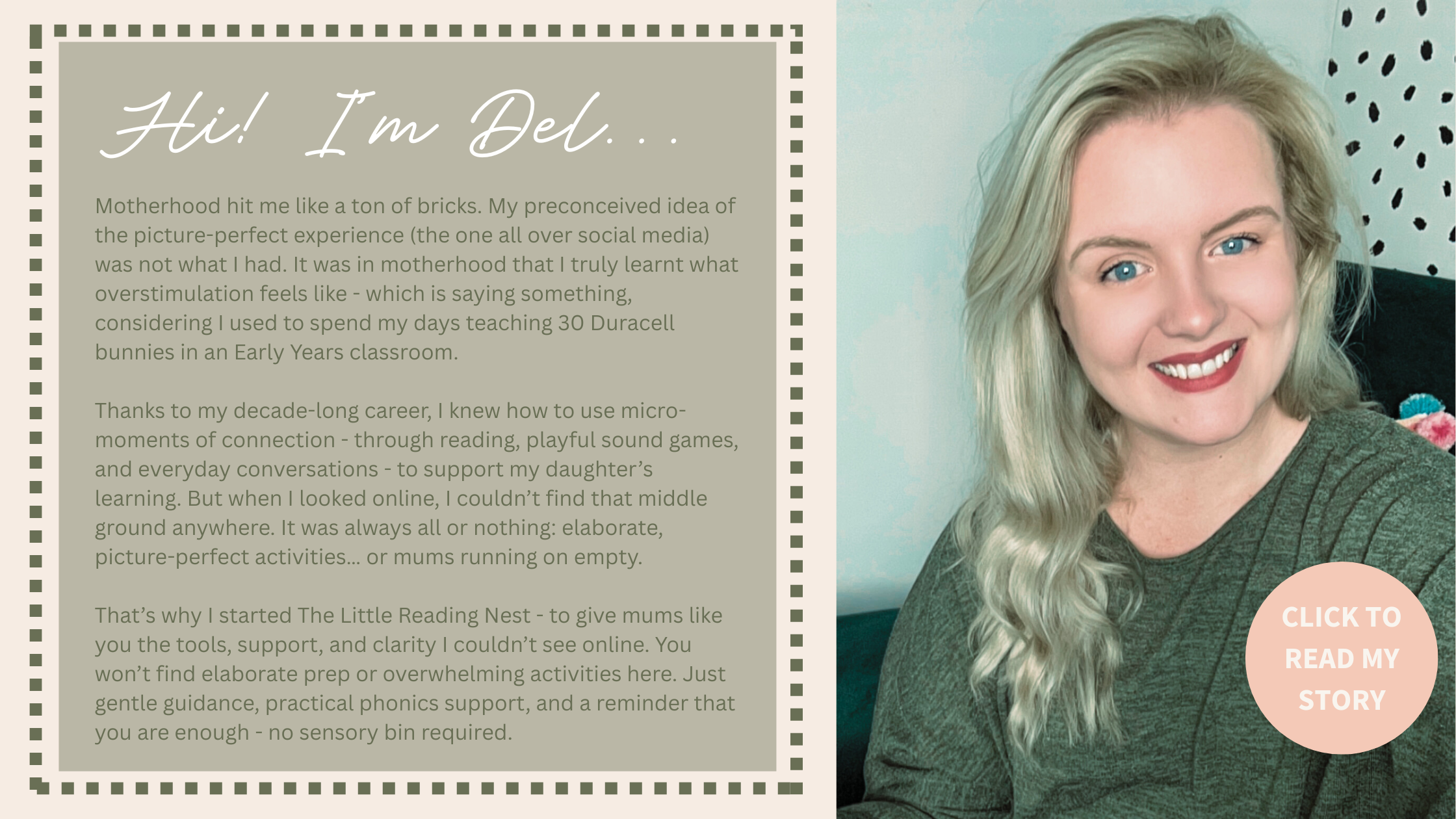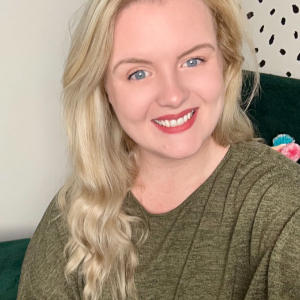Why Your Child's Language Development Could Make or Break Their School Journey

The first day of school can feel like a leap into the unknown, not just for your child, but for you as well. One of the most crucial factors in your child’s success at school is their language development. It directly impacts their ability to understand instructions, engage in conversations, and even build relationships with peers.
If your child is starting school this September, you may be asking yourself, "Will they be able to ask for help?", and "Will their teacher understand them?". You’re not alone. 20% of children in the UK start Reception with some form of speech and language difficulty, according to a 2023 report by ICAN and the Royal College of Speech and Language Therapists. And in some areas, particularly where social disadvantage is higher, that number can rise to 50%.
As an early years teacher, SENCo, and early reading specialist, I’ve seen first hand how crucial it is to address language development milestones before your child steps into Reception. Early intervention can make all the difference in their school journey, ensuring they’re not just ready academically, but socially and emotionally too. And I can tell you: strong speech and language development play a huge role in a child’s confidence, relationships, and success with early literacy.
This blog is for parents of 3 and 4-year-olds—particularly those starting school this September—who want clear, practical advice on spotting signs of speech and language delay, understanding the difference between a delay and a disorder, and knowing when (and how) to seek support.
⚠️ Important: If you’re concerned about your child’s speech or language development, always speak with your GP or health visitor. While I hold a Master’s degree in SEND and have over a decade of experience supporting children with communication difficulties, I cannot diagnose conditions. Your first port of call should always be a healthcare professional.
Why Language Matters Before School Starts
Children arriving in Reception are expected to:
-
Communicate their needs and ideas
-
Follow multi-step instructions
-
Understand story language
-
Engage in simple conversations with peers and adults
-
Begin to hear, identify, and play with the sounds in words (essential for phonics)
If your child is struggling in these areas, the classroom environment can feel overwhelming and confusing. That’s why early identification and support, before they start school, is key.
Speech Checklist for 3 and 4-Year-Olds
I love a good checklist, however, it's important to note that the checklists below are a guideline, not a one-size-fits. Every child is different, but the lists below are good indicators of what to look out for.
✅ By age 3, most children can:
-
Use 3–4 word sentences (“I want juice”, “Daddy go shop”)
-
Say around 200–500 words
-
Be understood by familiar adults most of the time
-
Follow 2-part instructions
-
Ask simple questions
-
Use language in pretend play
-
Show interest in books and songs
✅ By age 4, most children can:
-
Speak in longer, more complex sentences
-
Use a vocabulary of 1,000+ words
-
Ask lots of “why” and “how” questions
-
Tell simple stories or events in sequence
-
Use pronouns and prepositions correctly (I, me, on, under)
-
Take turns in conversations
-
Be understood by unfamiliar adults most of the time
If your child is consistently falling behind in multiple areas, it may be a sign of speech and language delay or possibly a disorder - and yes, there is a difference!
Signs of Language Delay and Language Disorder
As a parent, spotting potential speech or language delays early on can feel overwhelming, but it’s important to remember that early intervention is key. Language development milestones follow a general pattern, but every child is different. Some might develop at a faster or slower rate than others, which is completely normal. However, if your child’s language development seems significantly behind the typical milestones for their age, it could be a sign of a delay.
Speech and language delay refers to a situation where a child’s language skills lag behind their peers. In contrast, language disorder is a more persistent issue where the child struggles with language in a way that doesn’t match their developmental stage, often requiring professional intervention to support their learning.
For 3-4 year-olds, here are some further language development milestones to keep in mind:
- Vocabulary development: By age 3, most children should have a vocabulary of around 200-1,000 words. If your child is significantly behind in this, it might be worth consulting a professional.
- Sentence structure: By age 4, children should start using longer sentences with more complexity, such as "I want to play with the blue truck."
- Pronunciation: While some sounds (like "r" or "th") can take longer to master, by age 4, children should be relatively clear in their speech, so it’s understandable to others.
A delay in meeting these milestones could point to underlying issues with their language development that may need addressing before they start school.
Signs to Watch For: Speech and Language Delay in 3 and 4-Year-Olds
🚩 Red flags in 3-year-olds:
-
Not using 2–3 word phrases consistently
-
Struggles to follow simple instructions
-
Frustration when trying to speak
-
Vocabulary under 100 words
-
Poor eye contact or lack of interest in conversation
-
Difficult for familiar adults to understand
🚩 Red flags in 4-year-olds:
-
Sentences still very short or disjointed
-
Can’t tell a simple story or describe events
-
Echoes phrases rather than forming own ideas
-
Difficulty following classroom-style directions
-
Rarely initiates conversation or asks questions
-
Still unclear to unfamiliar adults
Check Their Hearing and Sight - Now, Not Later
Even though vision and hearing screenings are part of the Reception year, they usually don’t happen until January or February. That’s a long time for a child to potentially mishear sounds, miss visual cues, or become disengaged in learning. I can not tell you how many times I've had children in my class find out they have a signal hearing loss half way through the school year! If your child happens to have hearing issues, your child's teacher should know at the start of the year, so they can put provisions in place from the very first day.
If your child is starting school this September, I strongly recommend booking:
-
A hearing check with your GP or local audiology service
-
A sight test at a child-friendly optician (NHS tests are free for under 16s)
Ruling out these issues before school can remove a huge barrier to communication, learning, and behaviour. It's also important to note here that if your child has a history of ear infections or you suspect they’re not hearing you well, consider that hearing issues can mimic speech delays.
The Importance of Language Development for School Success
Your child's language development will directly influence their success in school. As a phonics teacher, I can tell you that language and literacy go hand in hand. Phonics lessons rely on a child’s ability to hear and produce individual sounds in words. If a child is struggling with speech and language, they may have difficulty picking up phonics skills such as blending and segmenting sounds, which are vital for reading and writing.
School isn’t just about academic learning; it’s also about social interaction and communication. If a child has difficulty expressing themselves or understanding others, it can affect their ability to make friends, follow directions, and participate in classroom discussions. This can lead to frustration and a lack of confidence, especially when starting school for the first time.
As I've mentioned throughout this blog, the key is early intervention. A mum's gut feeling is never wrong. If you feel your child may have a language delay or disorder, go and speak to your GP or your school's SENCo. Speech and Language interventions will be put in place for your child every week, but only if you raise concerns early. The first few weeks of the Autumn term are about your child's teacher getting to know them. If they know your child has areas that need support, provisions can be put in place sooner.
Here is a link to the Phonics at Home Curriculum - overwhelmed with supporting your child's reading, writing, and phonics? Don't know where to begin, or you're too busy to learn, prep and prepare fun phonics activities that will keep your child engaged? I've got you. Click the link to learn more.
Practical Tools to Support Speech and Language at Home
While you’re waiting for support, or just want to give your child the best start, these strategies can help at home:
1. Comment Instead of Questioning
Over-questioning can shut down conversation. Try this:
Instead of: “What colour is that?”
Say: “That’s a big red fire engine. Look—it’s got a ladder!”
This models rich language and encourages listening.
2. Use Repetition and Expansion
Build on your child’s speech without correcting:
Child: “Dog run.”
You: “Yes, the dog is running! He’s very fast.”
3. Play-Based Talk
-
Small world toys (cars, animals, dolls)
-
Role play (shops, cafes)
-
Building games (“Put the red block on the green one”)
Talk through what you’re doing and give language a purpose.
4. Daily Reading—Even a Few Minutes a Day Can Make a BIG Difference
-
Choose repetitive books (like Dear Zoo or Brown Bear, Brown Bear)
-
Let them “read” parts back to you
-
Talk about the pictures and sequence
5. Use Visuals to Support Understanding
-
Daily routine cards
-
Choice boards
-
Emotion faces or “now/next” visuals
Helpful Resources for Parents
🎨 Colourful Semantics:
- Colour-coded sentence building (Who/What doing/What/Where) to support sentence structure and grammar.
Great for children who leave out words or mix up sentence order.
📱 Apps to Try:
-
Splingo – Developed by SLTs - it has been specifically designed to target different areas of language development with fun, engaging games
-
Speech Blubs – Focuses on articulation and vocabulary - it is a voice-controlled speech therapy app designed to help your child learn new sounds and words. (My only caveat with this app is that there are letter tracing elements to it, which I don't think are the best teaching tool - but that's a conversation for another time!)
📘 Useful Organisations:
-
ICAN – Free resources and support for communication needs (https://www.icancharity.org.uk/)
-
Afasic – For families of children with speech, language, and communication needs (https://www.afasic.org.uk/)
-
The Communication Trust – Information for parents and professionals (https://www.slcframework.org.uk/)
When to Seek Help
If you notice that your child is not meeting the expected language development milestones for their age, or if they struggle with things like forming sentences, understanding instructions, or pronouncing words clearly, it’s a good idea to seek help. The earlier you intervene, the better the outcome can be, so don’t wait for problems to become more established.
As previously mentioned, a good first step is to consult with your child’s health visitor or GP. They can help assess your child's speech and language skills and, if necessary, refer you to a speech and language therapist or an early years specialist. The waiting times (speaking as an experienced SENCo) are crazy at times, I strongly urge you to speak to your GP sooner rather than later if you feel you need to.
In conclusion
Speech and language are the foundation of learning, friendship, and confidence. If your child is 3 or 4 and due to start school this September, this is the perfect time to check in on their communication development.
You don’t need to wait for someone else to raise the alarm - you know your child best and a mum's gut feeling is never wrong.
If you’re unsure whether their talking is where it should be, take these steps:
-
Use the speech checklist for 3 year olds and 4-year-olds above
-
Book a hearing and sight check
-
Try play-based strategies and resources like Colourful Semantics
-
Speak to your GP or health visitor for peace of mind
And as always, remember that you've got this! This is a year of big change for your family, but it will be ok, you are doing an amazing job, and you are a bloody good mum!
Free Resource: The Little Reading Reset
If you want easy, no-pressure ways to support your child’s early literacy and communication, even in a busy day, download The Little Reading Reset.
🎁 Inside, you’ll find:
-
5 simple ways to build language and reading into daily life
-
Stress-free strategies for working on speech, phonics, and connection
-
Designed especially for overwhelmed mums
👉 Download using the form below!
The Little Reading Reset
Sign up below to grab your FREE guide to my 5 simple ways to use micro-moments of learning with your child throughout the week to give them the best start to their early literacy development.





